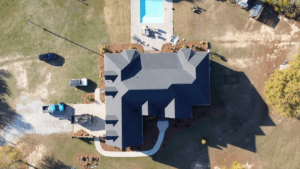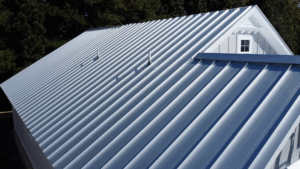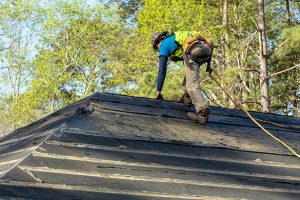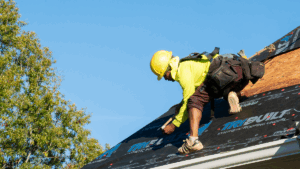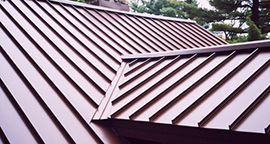
Lightning and Metal Roofs: Should I Worry?
As metal roofs become increasingly popular among South Carolina, North Carolina, and Georgia homeowners, a lot of curious people who are considering a metal roofing replacement are asking themselves this relevant question: “Does a metal roof attract lightning? Will my family be safe?” There is a common misconception when it comes to metal roofing and lightning that, since metal is highly conductive, the material will increase the likelihood of lightning striking a home.

So, should you worry about lightning strikes when you upgrade to a metal roof? Rest assured that there is no danger of its kind when you choose to install metal roofing for your home. In fact, this type of roof may make a lighting strike less hazardous should one occur. International Construction Services, Inc., one of the leading local contractors for roofing maintenance and replacement, explains the science behind it.
Debunking the Myth
The suspicion originated from the fact that metal can act as an electrical conductor. However, despite that, metal roofs absolutely do not attract lightning strikes. Moreover, they are not struck any more often than any other type of roofing material. The chances are the same, whether you have a metal roof or not.
So, what exactly is lightning attracted to? Generally, lightning hits thin and high points like towers and light posts, as well as structures that stand out from an expansive area of ground, such as a stall in the middle of a ricefield. That means that the likelihood of a lightning strike hitting your home or commercial building depends on both the height, structure, and size, rather than the materials that were used in the construction.
The most dangerous element of a lightning strike is fire. That is because most roofs, regardless of the material, will likely combust when it comes in contact with lightning. This is where metal roofs actually come in handy. As far as roofing materials go, natural wood is much more likely to combust than metal due to the latter’s non-combustible properties.
So, what happens when lightning actually does strike your metal roof? It will produce electricity, which will be distributed across a larger area, eventually reducing the immediate impact of the strike. From there, the fire-resistant features of metal will help to further protect your building.
Protect Your Home
There is currently no known material that can be used to reduce the chances of a lightning strike. You and your metal roofer can, however, do things to decrease the potential for any structural harm to your house should the structure be struck.
Aside from going through your material options to make an informed choice for your roof, you might also want to set up a lightning protection system for your home. It often consists of a metal lightning rod, which acts as the tallest component of your home, and metal wires, which connect to the rod. The metal rod is placed in the ground, so when lightning strikes, the rod can safely divert the discharge to the earth, preventing any structural damage to your property.
If you’re searching online for “local roofers near me” and can’t find a good option for your needs, you can always turn to International Construction Services, Inc. Schedule a consultation with one of our experts by calling us at (803) 699-5106 or by completing our form.


